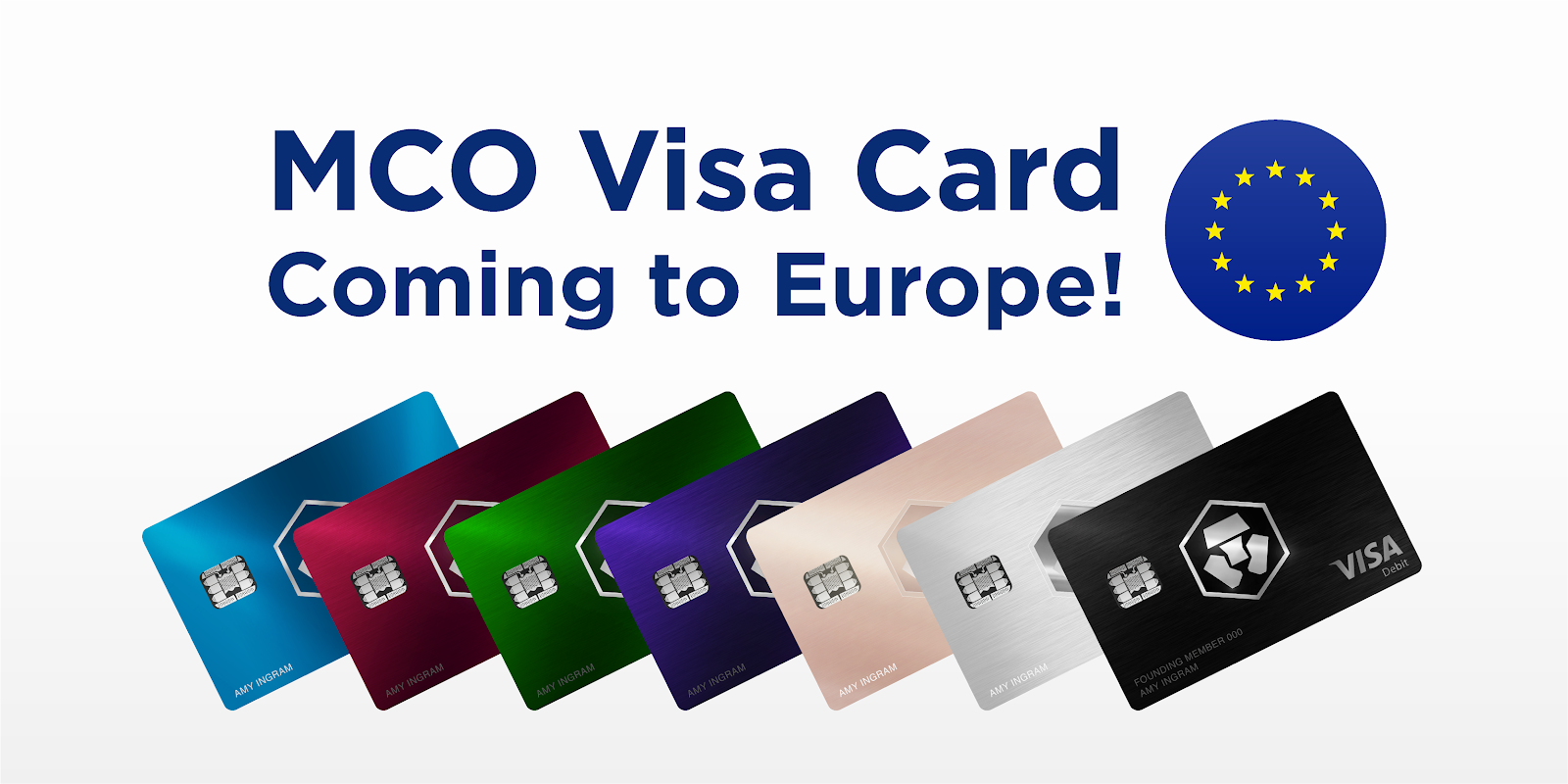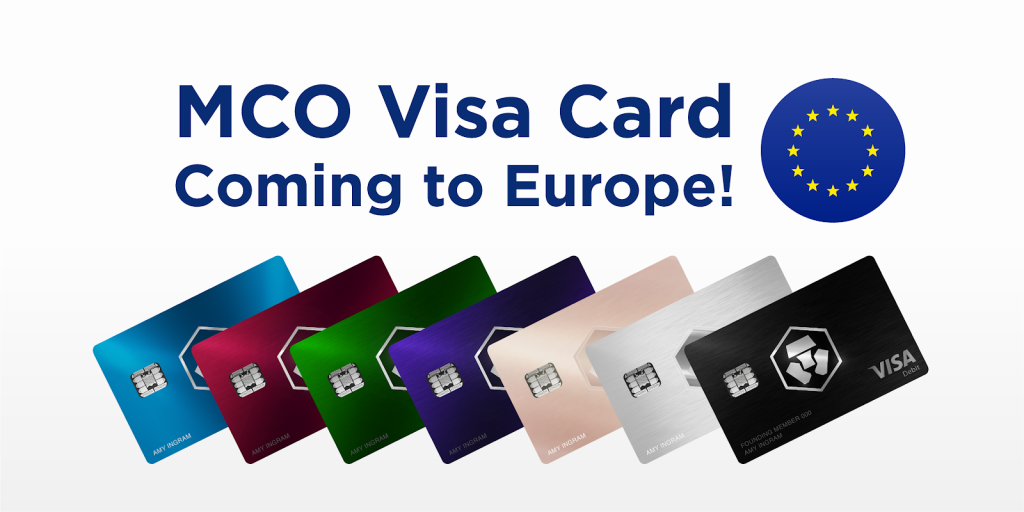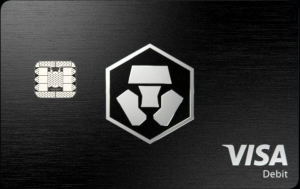
Cryptocurrency Credit Cards 2022

A crypto-rewards credit card uses digital currency, also known as cryptocurrency, to withdraw cash or buy in person or online from a retailer. A crypto-credit card works in a similar way to a conventional credit card because it provides funds to pay for rewards with the digital currency Bitcoin.
Backed by popular card issuers like Visa and Mastercard, you can enjoy flexible spending and enhanced rewards in cryptocurrencies. Crypto credit cards are similar to traditional credit cards in that they collect crypto reward points when paying your credit card bills in cryptocurrency.
Some crypto cards have partnerships with major credit card companies such as Visa and Mastercard, which means you can use your crypto card with any service accepted. Since crypto-rewards cards have a similar payment processing network to Visa or MasterCard, they can be accepted by any merchant who accepts them.
The biggest difference between the cryptocurrency rewards cards compared to others is that you can earn rewards with a specific cryptocurrency such as Bitcoin, Cashback, or Air Miles. Use your rewards to purchase crypto, avoid SOFI’s usual crypto commissions and transaction fees and secure better cash rates than other crypto rewards cards like Gemini, especially when you use them for restaurants and purchases.
This card offers you a choice between crypto and bitcoin rewards. Unlike credit card bonuses, you earn expenses in the form of points, cash or bitcoins that can be considered a spending rebate and are not taxed as earned. You pay capital gains tax on crypto bonuses only if you convert them into US dollars. It is true that the value of your cryptocredit card reward will increase as a cryptoinvestment over time but is not guaranteed in the way that your points, miles or cash returns are with traditional credit card options.
Coinbase, one of the largest cryptocurrency exchanges, does not charge transaction fees when you use a credit or debit card to purchase cryptocurrencies and will disclose this to you at the time of your transaction. You can apply for a cryptocard via cryptocurrency exchange cards such as Block.fi, although there is a waiting list. If you make all transactions with cryptocurrencies through your own digital wallet, it is better to apply for the cryptocard online.
A crypto-debit card, like other traditional financial products, tries to legitimize the cryptocurrency as a valid form of payment. You can use typical ATMs to withdraw cash or cash with a cryptocard.
This type of card allows you to conduct transactions with merchants who accept debit cards with money from your crypto wallet. Bitcoin debit cards (also known as crypto-debit cards) act as pre-paid debit cards loaded with cryptocurrencies which can be purchased online or in-store from merchants who do not accept cryptocurrency. These cards convert and store bitcoin and other cryptocurrencies into fiat currency without the need for a purchase.
As cryptocards become more available, consumers are also becoming more interested in obtaining rewards as a new way to spend their everyday lives. Mastercard debit and pre-paid cards offered by platforms such as Uphold and BitPay allow people to convert their cryptocurrency holdings into traditional currencies, and Mastercard credit cards are offered by cryptographic companies such as Gemini, who allow their customers to earn rewards in cryptocurrencies based on their spending activities. Crypto-friendly investment platforms such as SoFi, Block.fi and the Gemini cryptocurrency exchange are launching credit cards with crypto-premium options and loyalty programs, while more conventional reward credit cards such as Mastercard have announced a new partnership with digital investment platform Bakkt.
As part of the announced program, merchants will be able to offer Bitcoin and cryptocurrencies (Bakkt) as an alternative to traditional credit cards with loyalty points offered to users, including restaurants and retailers. Banks and financial institutions that offer Mastercard credit and debit cards will allow their customers to withdraw funds and earn loyalty points on the Bakkt platform by buying and selling digital assets with cryptosupport.
Unlike traditional credit and debit cards, cardholders can use them for both cryptocurrency and fiat currency transactions. The Visa logo on the cryptocard ensures that users can use the card at more than 40 million points of sale worldwide. The Blockfi Bitcoin Rewards credit card gives cardholders 3 per cent cashback when they pay in Bitcoin or another cryptocurrency for restaurant purchases, 2 per cent for groceries and 1 per cent for other purchases.
As a result, cardholders cannot use important cards such as cryptocards for gambling, cash advances or payments to financial institutions. Bitcoin, which is earned through card transactions, can be deposited into a blockFi account where it is considered standard cryptofinance, and it can be withdrawn, paid interest, traded or used as collateral for cryptobacked loans. Big things are happening at the interface between the cryptoverse and traditional finance, and cryptocurrency-funded debit cards are among the most exciting.
You may be able to join the waiting list for your own crypto-rewards credit card but the bank has not released many details about the card other than that it does not have any annual fees, no late payment fees, no foreign transaction fees and no ATM fees. Information about the verification of an updated & BlockFI Rewards Visa (r) signature credit card, Brex 30 card, Gemini card, Nexo card and Celsius card collection has not been provided or verified by the issuer. Brex allows credit card holders to exchange their reward points for Bitcoin and Ethereum, but unlike existing options such as cash, travel and gift cards, cryptocurrency redemption is not worth much.
